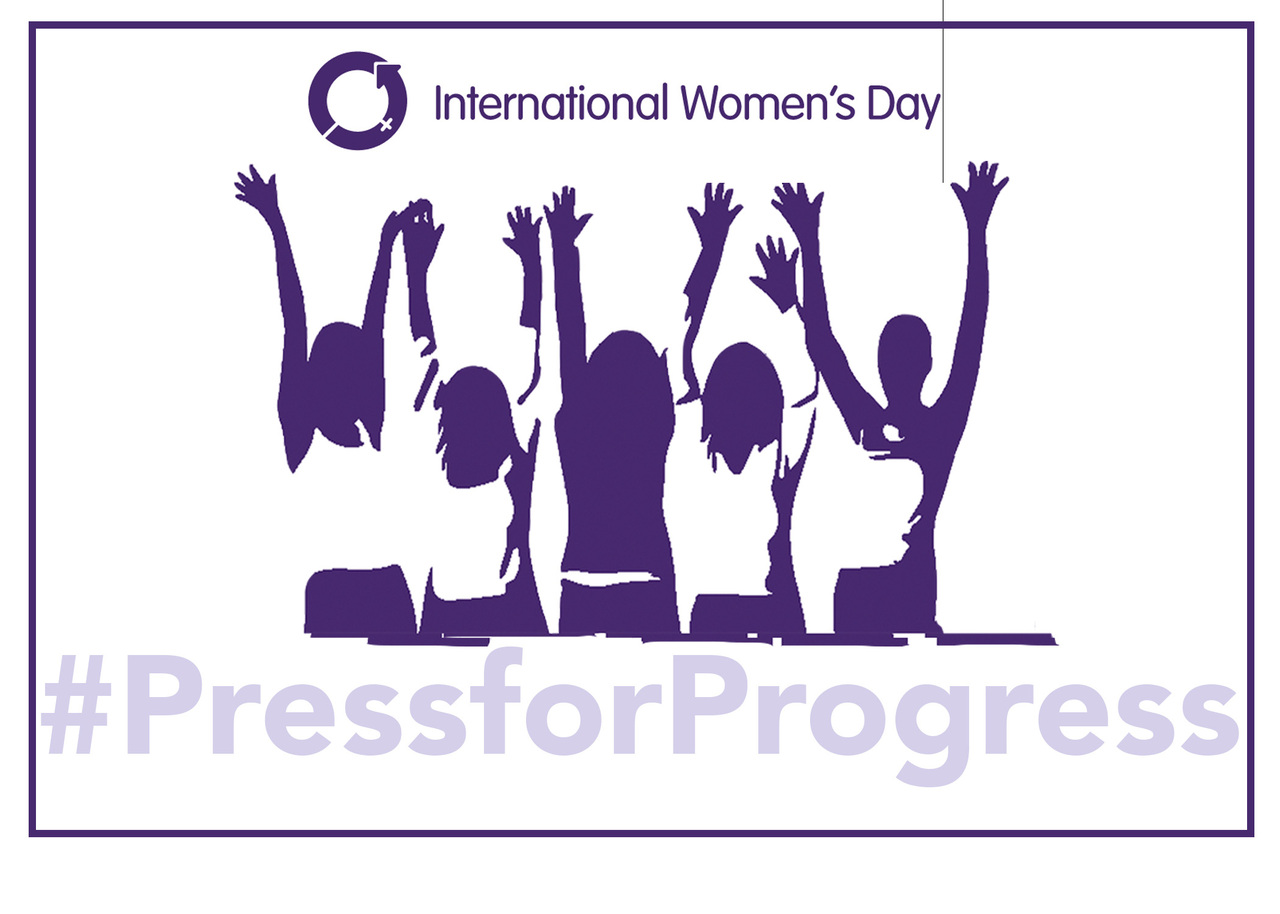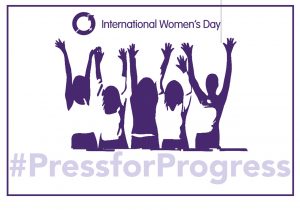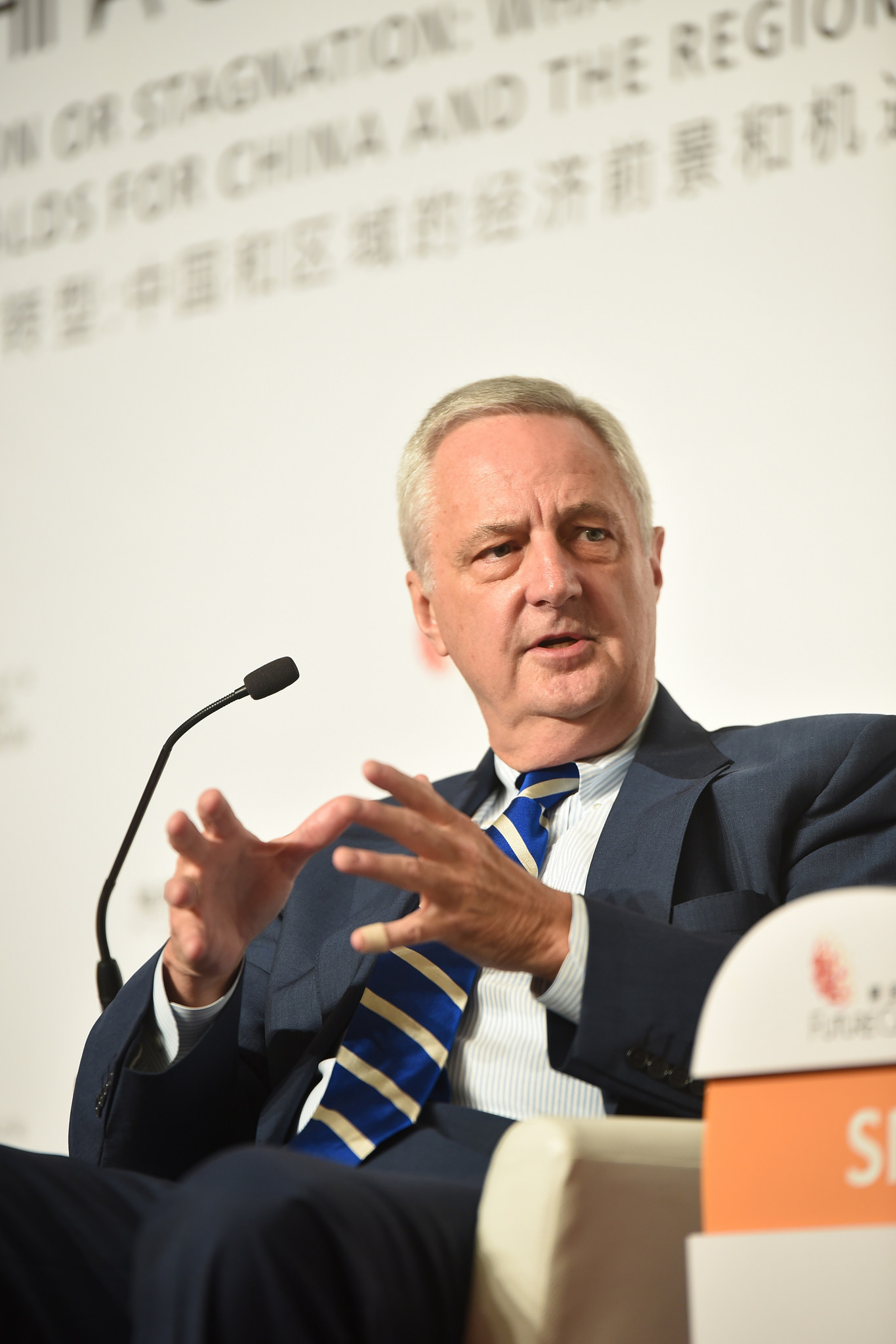The Elliott School marked International Women’s Week with a speaker series featuring distinguished alumnae, called Pathways to Success: Career Accomplishments of Elliott School Women. The featured panelists ranged from recent graduates to seasoned professionals, and work for powerful institutions including the State Department, the World Bank, and the White House. They are passionate about issues like stopping modern day slavery, ending poverty, advocating for immigration and human rights, and of course, advancing gender equality globally.
The conversation that ensued was an up-close and personal look into how successful careers in international affairs emerge. One thing became clear — there are many pathways to career satisfaction and success. All the women described turning points in their careers that were as full of serendipity as of hard work; trajectories did not always follow a straight line.
Other takeaways from their collective wisdom were the importance of taking advantage of faculty mentors and the career services office. In many cases, these resources provided important routes to internships that led to jobs and other opportunities. Language fluency was cited by many as not only opening doors to career opportunities but opening windows into new worlds that deepened their commitment to international affairs.
In the wake of the #MeToo movement, the conversation moved on to tips for dealing with sexism and discrimination in the workplace. One panelist, the author of the #MeTooNatSec letter, signed by over 200 international affairs professionals, called for the international affairs community to address the serious gender imbalances in senior leadership positions.
The women spoke sagely of the spectrum of workplace issues that often start in a permissive environment where people are spoken over, shut out of meetings, and shut out of the decision making process — problems born out of an imbalance of power. The panelists emphasized the importance of remaining professional, being prepared with a toolbox of responses for managing workplace situations such as scripting difficult conversations, and above all surrounding yourself with people who can support you to reach your goals.
Pathways to Success: Career Accomplishments of Elliott School Women featured the following distinguished Elliott alumnae:
Rumana Ahmed, BA ’11, former Senior Advisor to the Deputy National Security Advisor for Strategic Communications and Global Engagement, White House
Christie Arendt, MA ’06, PhD ’17, Global Affairs Section Head, U.S. Department of State’s Bureau of Democracy, Human Rights & Labor; Elliott School professorial lecturer;
Andrea Barton Grote, MA ’10, Senior Program Manager, American Bar Association Rule of Law Initiative;
Jenna Ben-Yehuda, BA ’02, Vice President, Wittenberg Weiner Consulting; Founder; Women’s Foreign Policy Network; Elliott School adjunct professor;
Candice Bennett, BA ’98, MA ’03, President, Candice Bennett & Associates; Director of Development, Good Shepherd Housing & Family Services; former candidate for local office;
Sanola Daley Nelson, MA ’08, Women’s Employment Senior Expert Consultant, International Finance Corporation; former Advisor, Diversity & Inclusion, Inter-American Development Bank;
Barbara DeRosa-Joynt, BA ’90, MIPP ’05, Division Chief for Biodiversity, U.S. Department of State;
Davina Durgana, BA ’10, Senior Statistician and Report Co-Author, Walk Free Foundation’s Global Slavery Index; Assistant Professor and Senior Practitioner Faculty, SIT Graduate Institute;
Kathy John, MIPP ’09, President, 2KJohn Associates, Immigration and Human Rights Consulting; former Associate General Counsel and Fraud Prevention Counsel, U.S. Department of Justice Executive Office for Immigration Review
Maura K. Leary, MA ’11, Communications Lead, Poverty and Equity Global Practice, World Bank Group
International Women’s Day celebrates the social, economic, cultural, and political achievements of all women. These events were sponsored by The Elliott School of International Affairs; the Gender Equality Initiative in International Affairs; the Leadership, Ethics, and Practice Initiative; Graduate Student Services; and GW’s Global Women’s Institute.






